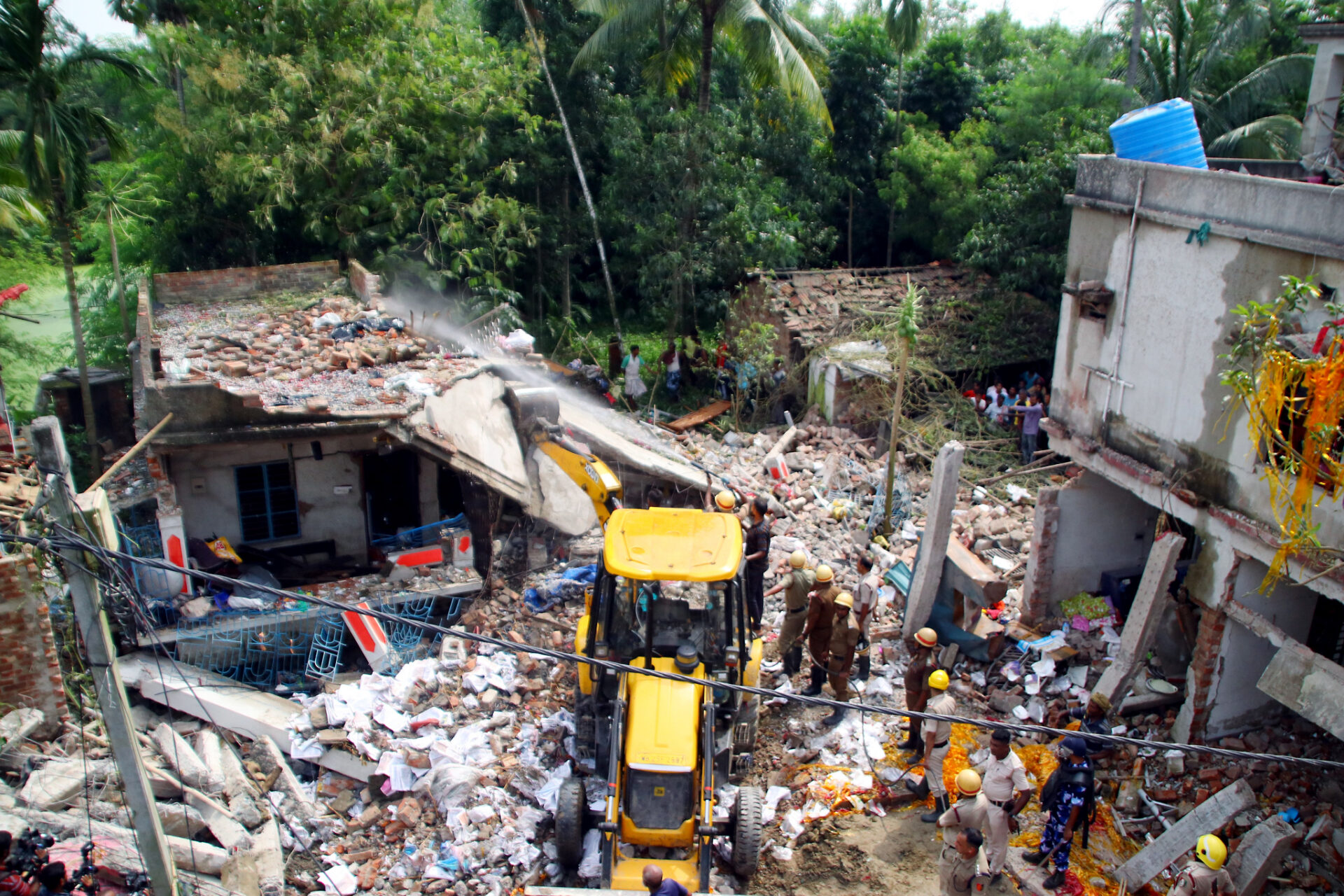The product manufactured in the ‘cracker’ factories is lethal and does not qualify as firecrackers. An innovative product is called ‘alu bomb’, a cracker filled with stone chips, lethal for anyone facing it.
West Bengal has a rich tradition of making bombs. The British rulers unearthed the skill more than 100 years ago in 1908 when they raided a property at Muraripukur Road in Kolkata. The rich tradition, though not much acknowledged in rest of the country, comes to the fore only when some sad accidents take place. The latest one happened at Duttapukur in the district of North 24 Parganass where accidental blast blew off a makeshift factory along with its workers. This is not a stray incident since such accidents take place at regular frequency, the last two were three months ago at Egra in East Midnapore district and at Maheshtala in South 24 Parganass district.
In the first week of June this year the Ministry of Home Affairs (MHA) handed over to the National Investigation Agency (NIA) investigation relating to one such accident in early December (2022) which took place in East Midnapore district. The MHA notification recorded that “…manufacturing of illegal bombs or firecrackers has become a cottage industry in the state of West Bengal and the incidents of accidental blasts are taking precious lives of innocent civilians; …the local population is being terrorized by such incidents.” Under the NIA Act the Centre is authorised to hand over any case across the country filed under the scheduled offences to the federal agency without the consent of state government. Six months after the incident, and after two more such accidents at Egra and Maheshtala, MHA had found it necessary to investigate a six-month-old case.
One reason for the elected governments, both at the Centre and the State, to drag their feet in ensuring safety at villages where illegal bomb making factories abound, could be the “cottage industry” status that the government notification acknowledged. Legal or illegal cottage industry provides livelihood to people living in a geography where there is hardly any gainful employment opportunities. Even West Bengal Chief Minister Mamata Banerjee had assured that the state government would prepare a green firecracker cluster so that the illegal factories and its workers can have a livelihood. She had blamed intelligence failure for the accident. That was three months ago. Green cracker policy perhaps is on a drafting stage. Intelligence and the local police remained financially savvy as before backing up the cracker units.
The cottage industry unit at Duttapukur was quite advanced. It had a research set-up with varied chemicals and instruments. In a hazardous trade there may be accidents. The Duttapukur incident is an example. There are two problems with the enterprise. First, there was no licence from any authority. But given the very nature of free enterprise in the state such aberrations are not rare. Second, the product manufactured there was lethal, and does not qualify as firecrackers. An innovative product is called “Alu Bomb”, a cracker filled with stone chips, lethal for anyone facing it.
Coming back to the green firecracker cluster that Mamata Banerjee has been planning, the point one cannot miss is that the “firecracker” clusters in West Bengal villages originated from the free enterprising spirits. If in the process the “green” factor got omitted the fault lies with the market. Or the failure of the proponents of “green” cracker concepts in understanding the market. There is a good demand for products like “alu bomb” both in West Bengal and across the porous border in Bangladesh. Green crackers, in contrast, may find some buyers at affluent pockets of large cities like Kolkata, that too during some festival times, twice or thrice in a year. Can one run a business with such paltry demand? In contrast, the current “crackers” are used in the daily struggle of ordinary people living both in Bangladesh and West Bengal. Evidently, rules like “green crackers” are conspiracies of sort by the affluent to deprive the poor enterprising Bengalis. Even Mamata Banerjee said that earnings from safe “green crackers” could be less but the process would at least stop fatal accidents.
The problem lies elsewhere. Green cracker being less remunerative, incidental earnings—rental income of law enforcers and political protectors—will fall sharply, disturbing the “socio-economic balance” in the state. As regards the national protector NIA, death of some “wretched of the Earth” are less important than the fortune of its political masters. Too deep an involvement with a part of the country where the current ruling masters of NIA, the ruling BJP is weak politically, will not derive any immediate benefit for the party. Such half-hearted approach is evident from the six-month-gap between the blast in December and notification of NIA enquiry in June. More important, the few investigations handed over to NIA have yielded more media interest than nabbing of the criminals. Even an ardent supporter of the Union government will find lacunae in the Centre’s approach to weeding out the bomb making industry of West Bengal. If such mushrooming of illegal bomb factories, silently sponsored by the local administration, does not merit invoking of the Constitutional options available to the national government, perhaps it is time to drop such sections altogether.
For the poverty-stricken people of West Bengal villages, it is not time to celebrate the historical bomb making tradition of the state nor is it an occasion to mourn the deaths but to carry on somehow earning their daily bread, even in a hazardous activity.
Author Sugato Hazra’s latest book is “Losing the Plot: Political Isolation of West Bengal”.

